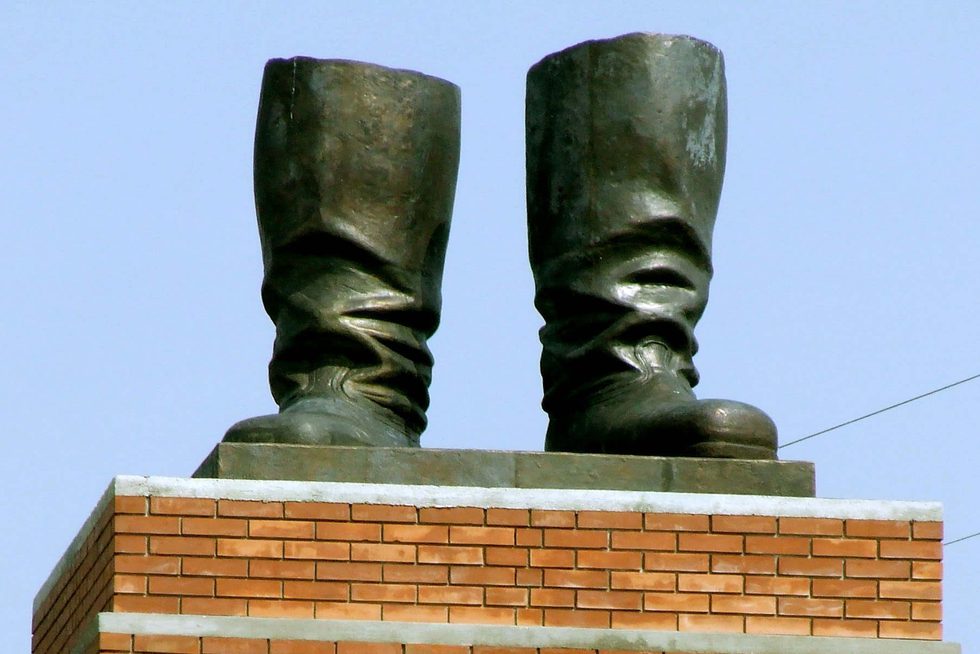Introduction: Lessons for Liberalism from the “Illiberal East”
From the Series: Lessons for Liberalism from the “Illiberal East”
From the Series: Lessons for Liberalism from the “Illiberal East”

The cumulative effects of Brexit, the resurgence of populist politics in Europe, and the election of Donald Trump as president of the United States have given rise to the perception that Western liberal democracies are undergoing profound change, if not a bona fide crisis. Moreover, there is a sense that it is the political liberalism of the post–Cold War period—rather than its far less popular companion ideology of neoliberalism—that finds itself in disarray.
As scholars and commentators rummage through their intellectual toolboxes for explanatory frameworks, many are turning to (post)socialist histories and experiences as heuristic devices for making sense of the upheavals in Western politics. Certain of these lessons from (post)socialism are offered by Western liberal media outlets in order to shock their audiences into recognizing illiberalism at home. Other lessons come from nationalist forces in Central and Eastern Europe, which are less and less sensitive to the civilizational lessons of post–Cold War political liberalism and instead claim civilizational superiority—and apocalyptic authority—for themselves. Still another set of lessons is offered by commentators who point to the negative effects of socialist and postsocialist forms of authoritarianism, corruption, erosion of public trust, and consumption. These critics identify similar patterns in Western liberal democracies and forewarn Western polities of potential dystopian futures.
The postsocialist transition, as both discursive space and set of practices that attempted to make capitalists out of socialists and liberals out of totalitarians, renders the former socialist world a veritable goldmine of “portable analytics” (Boyer and Howe 2015) for understanding the current shifts in the Western political landscape.
In this Hot Spots series, we suggest that the postsocialist transition, as both discursive space and set of practices that attempted to make capitalists out of socialists and liberals out of totalitarians, renders the former socialist world a veritable goldmine of “portable analytics” (Boyer and Howe 2015) for understanding the current shifts in the Western political landscape. We use the term postsocialist, even though the most salient challenges to post-1989 Eastern European polities today originate not in the socialist past but in the (neo)liberal present. For us, postsocialism is a category that marks the post–Cold War reconfiguration of power relations and the ideological and geopolitical fault lines that continue to shape the present.
Indeed, it is the specific features of actually existing post–Cold War liberalisms that come into view when we deploy socialism and postsocialism as heuristic devices. For example, contributors to this series show that post–Cold War political liberalism—that is, the institutional and discursive practices that went into the making of liberal democratic polities after socialism—have failed to address forms of dispossession caused by its companion ideology of neoliberalism (Eppinger; Mattioli). They also show that this version of liberalism looks more like faith than reason (Dzenovska). It speaks in clichés that are supposed to incite people to recognize the truth, but in fact exhort them to adopt agreeable ethical and political stances. Our contributors also suggest that institutionalized forms of political and economic liberalism traffic in tropes that may make liberal publics feel better, but are ultimately complicit with multiple forms of violence (Kurtović, Reeves). Liberalism’s force turns out to consist not so much in its ideational superiority over other doctrines, but in its grounding in moral claims and military might (Klumbytė).
In this series, we aim to make sense of the shifting political landscape in a way that is attuned to both long-term processes and the state of emergency that is reinforced with each new wave of current events. Even though the ground appears to be constantly shifting beneath our feet, these essays insist that detailed, historically and geopolitically sensitive analysis of actually existing post–Cold War liberalisms is one key approach for making sense of the present. If short-term urgency reveals anything, we suggest, it is the repoliticization of both liberalism and anthropological knowledge practices.
For much of the post–Cold War period, anthropologists were engaged in critique as a set of practices that either exposed hegemonic power relations or traced how they came to be (Ortner 2016; Fassin 2017). Insofar as post–Cold War political and economic liberalisms were perceived as “winning” ideologies, this seemed to be an appropriate analytical-political tactic. But the current shifts in the political landscape demand a different form of engagement. As a result, there is a split between those anthropologists who continue to engage in critique and those who take a more normative position, whether in defense of political liberalism or in calls for alternative political visions. We see this repoliticization of knowledge practices as noteworthy. Thus, in this series, interventions rooted in commitments to liberal democracy appear alongside voices arguing that close attention to normative discourses renders visible the limits of actually existing post–Cold War liberal reason, even when it is conscripted into the defense of progressive causes.
Boyer, Dominic, and Cymene Howe. 2015. “Portable Analytics and Lateral Theory.” In Theory Can Be More Than It Used to Be: Learning Anthropology’s Method in a Time of Transition, edited by Dominic Boyer, James D. Faubion, and George E. Marcus, 15–39. Ithaca, N.Y.: Cornell University Press.
Fassin, Didier. 2017. “The Endurance of Critique.” Anthropological Theory 17, no. 1: 4–29.
Ortner, Sherry B. 2016. “Dark Anthropology and Its Others: Theory since the Eighties.” HAU 6, no. 1: 47–73.